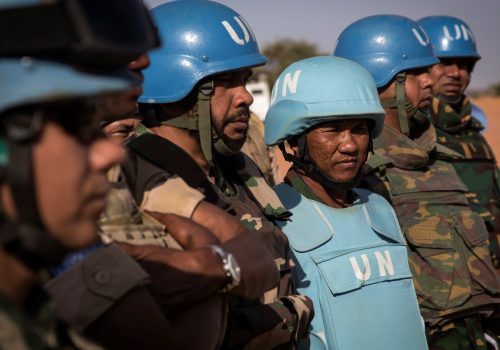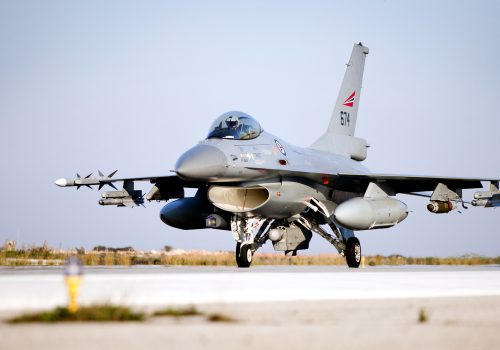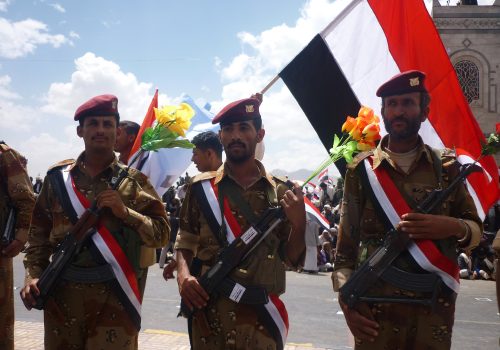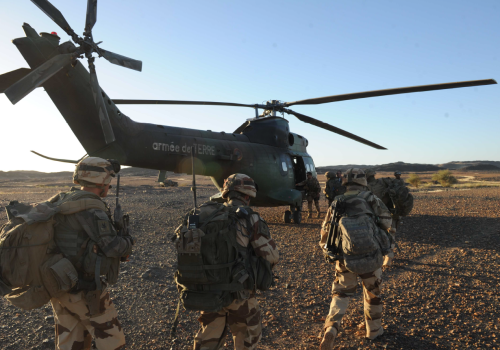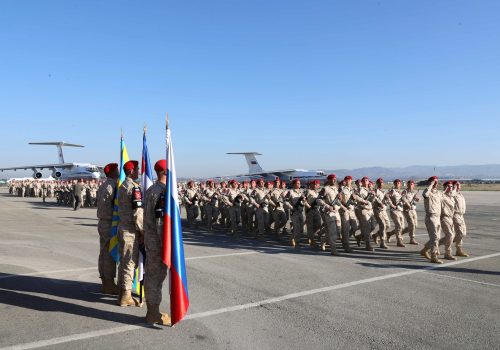Conflict management models in the MENA region
In partnership with

The region encompassing the Middle East, North Africa, and the Sahel is studded with complex and multi-layered conflicts in which local and international dynamics are closely intertwined. While this may sound like a simple truth, it has important implications for conflict management. Across the region, few wars are strictly intra-state conflicts or are internally resolvable. In most cases, like Libya, Mali, and Yemen, local and regional players, foreign actors, and international organizations have become co-conspirators in these crises’ destinies, argues the newly released report, Conflict Management Models in the MENA Region, authored by Karim Mezran, Chiara Lovotti, Alissa Pavia, Gerald M. Feierstein, Stefano Marcuzzi, and Petr Tůma. These actors often have divergent agendas and are guided by other priorities, pursuing different, sometimes opposing, normative models and pathways to peace.
Countries of the region have witnessed countless attempts to deal with, manage, and resolve conflicts by various actors that have registered mixed fortunes. In Mali, for example, the West had sought a long-term military engagement to mitigate the country’s crisis, whereby European intervention in the Sahel became the laboratory for a joint EU military culture before Russia contributed to the erosion of this exercise, explains the report.
On the other hand, the West’s NATO-led campaign in Libya in 2011 was short-lived and without long-term prospects for peacebuilding, leaving the country fragmented and its institutions in shambles. Other countries, like Russia, have prioritized hardline approaches to conflict management to safeguard domestic priorities. Russian interventionism in the MENA and broader Sahel has witnessed significant military deployments. Yemen is a unique case in point, with bottom-up approaches taking center stage. Civil society actors have recently taken essential steps to mediate the conflict, from negotiating local cease-fire agreements to prisoner exchanges.
Karim Mezran is director of the North Africa Program and resident senior fellow with the Rafik Hariri Center and Middle East Programs at the Atlantic Council focusing on the processes of change in North Africa.
Chiara Lovotti is an ISPI Research Fellow and Scientific Coordinator of “Rome MED-Mediterranean Dialogues”, ISPI’s and the Italian MoFA’s annual flagship event.
Image: World Bank
